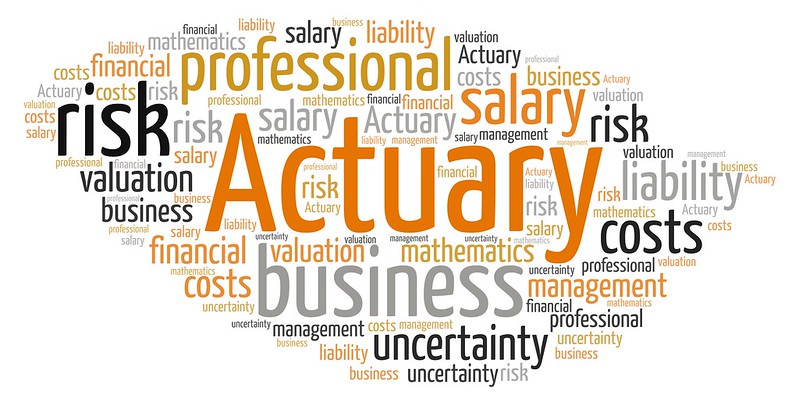Sorted Weekly Tweets
Picture Credit: David Merkel, with an assist from the YouImagine AI image generator || Twitter bird flies off into the sunset
Companies
- Missed signals: behind Trafigura’s $577mn loss on non-existent nickel https://t.co/fJNQSmKbgl Fascinating that they never did physical checks of what was delivered. Also that they didn’t do a background check on TMT. Feb 16, 2023
- Podcast Companies, Once Walking on Air, Feel the Strain of Gravity https://t.co/RaNTop40uS My kids ask me to do a podcast. I tell them it’s too much work for too little gain. I would rather read than listen, unless I am driving or cutting the yard. Feb 15, 2023
- One of the world’s richest families was thrust into the spotlight by a surprising share sale from one of its own members https://t.co/Gk6Xzr2OcU You need a liquidity plan, akin to what a private real estate fund does. You can’t assume that no family member needs liquidity Feb 15, 2023
- How Ben & Jerry’s ended up at war with itself https://t.co/x2W5knUvR7 The revolution eats it own children, even as they eat ice cream Feb 15, 2023
- As tech companies shed thousands of jobs, more employees want a say in their severance https://t.co/WHDVvdwRCO Hiring a lawyer at your severance can be valuable. Feb 15, 2023
- On the latest episode of the Zero podcast, @AkshatRathi speaks to the founder of Imprint Energy, which developed a printable battery for internet-connected devices. https://t.co/uIdNoxfPlz Looks promising Feb 15, 2023
- FICO scores are flawed. These lenders say they’ve found a better way to judge your credit https://t.co/jklyVW53r3 Sowing the seeds of new consumer bankruptcies on the low end of the income scale. Avoid debt for consumption purposes. Feb 14, 2023
- A $4B accounting shortfall typically raises alarm bells for an auditor. Somehow a PwC affiliate missed it at Americanas https://t.co/Vr72rqV6c7 PwC may have cultural problems. If you can miss something that large & not be culpable, it calls into question the value of audits Feb 14, 2023
- As tech giants look to slim down, middle managers are feeling the pressure https://t.co/4I5JhO6ez8 Not sure if this is good or bad Feb 13, 2023
Odds & Ends
- New Car Prices Are So High Only Rich Americans Can Afford Them https://t.co/yrGEmDSIVS This will eventually have political impacts, as regulations affect poor people more than the rich Feb 18, 2023
- Wanting to go big with AI in search, Microsoft could end up causing the kinds of harm it will come to regret, writes @parmy https://t.co/e9g3Mlom6D They are not sentient. They are easily tricked. They are code. Feb 18, 2023
- The buildout of so-called dark warehouses has begun, but the high-tech facilities are far from common due to their high price tags and the limitations of robotic technology https://t.co/i1xgwi8BKY Not quite ready for prime time Feb 17, 2023
- A ‘Crucial Bridge’ to History, the Codex Sassoon Could Fetch $50 Million https://t.co/z9xQGClGoF Really, you can’t put a price on this. I bet there are Hebrew scholars worried about who will buy this, & future access. Feb 16, 2023
- 3 amateur codebreakers set out to decrypt old letters. They uncovered royal history https://t.co/kNGYZx6YT7 But nothing significant, really… Feb 16, 2023
- This Company Uses Machine Learning to Track Your Antibodies https://t.co/c0r5Bk1Tn4 Promising technology Feb 15, 2023
- Two of the most-talked-about Super Bowl ads on Sunday focused on an unlikely topic: Jesus https://t.co/lDOsgH3cjM The gospels were written for a Roman audience as eyewitness accounts of who Jesus was & what he did. Read them & ask, was Jesus a legend, liar, lunatic or Lord? Feb 13, 2023
- @codywillard Wow, Cody. Glad you’re alive. The Lord had mercy on you and your family. Feb 12, 2023
Culture
- Yes, Single People Can Be Happy and Healthy https://t.co/6mrXtdv6ai It is better to be single & wish you were married, than to be married & wish you were single. That said, this article is wrong, at least for men. Married men live longer & are happier than single men, on average Feb 18, 2023
- The adults celebrating child-free lives https://t.co/hkiZK3zrpn Those not having or adopting children should be excluded from government pensions and healthcare benefits Feb 18, 2023
- Some school districts are doing away with honors classes, which has made some parents unhappy https://t.co/rPHDXEx68L All teaching only reaches a fraction of IQs. This is why there needs to be many levels of teaching: high, middle, low, if you want to have all children improve. Feb 17, 2023
- Education should not be a social experiment. It needs to be based off of what works, not wishful theories. What gets taught to prospective teachers in college is positively harmful to pedagogy. We need to end that. https://t.co/uHyxOznUxl Feb 17, 2023
- Miriam Adelson, along with her late-husband, poured tens of millions of dollars into former President Trump’s reelection campaign. Now she’s leading a push to legalize gambling in Texas https://t.co/jMmlxpVWq7 Legal gambling leaves society as a whole worse off Feb 16, 2023
- As the country emerges from a pandemic that left children zoning out over Zoom, parents are turning to the turbocharged “Russian math” method to give their kids an academic edge. https://t.co/zsdtgrNnel The examples given are not impressive Feb 16, 2023
- Disney has tightly controlled Winnie-the-Pooh’s image. With the copyright expired, ‘Winnie-the-Pooh: Blood and Honey’ breaks the wholesome mold https://t.co/2H3IxjRtOc This is not good, but it is notable. Perhaps $DIS will find a way to sue. Feb 15, 2023
Real Estate
- America’s Priciest Neighborhoods Are Changing as the Ultra-Rich Move to Florida https://t.co/GOIJ61QsPD The wealthy seek lower taxes and warmer places. There should be no surprise here. Feb 15, 2023
- Turning offices into condos: New York after the pandemic https://t.co/z8zoyRUTyy Popular concept. Tough but not impossible to execute Feb 15, 2023
- Brookfield Defaults on Two Los Angeles Office Towers. The properties include the Gas Company Tower and the 777 Tower https://t.co/KmTLc9r9OZ Losses go to Brookfield DTLA Fund holders, & their lenders Feb 15, 2023
- When It’s Easy to Be a Landlord, No One Wants to Sell https://t.co/brqym7aoJS With help from firms like Mynd that do property managment, you can keep your home w/a low rate mortgage, and rent it out Feb 13, 2023
- Why mortgage rates spiked from 6% to 6.5% early-February 2023 & what’s next https://t.co/y6sKncYEBs Complex way of saying “We don’t know.” Hint: the long end of the curve does not move much in response to short-term inflation. FOMC, take note Feb 13, 2023
- The high costs of housing are influencing romantic decisions https://t.co/opJ5P2Abjw Moving in reveals who each of you really are. Selfishness, laziness, bad communicating, substance abuse, lying… break relationships Feb 13, 2023
Adani Group
- Adani Group tells investors that they will address deadlines to repay debt with options including private placement notes and cash from operations https://t.co/FUEWh43C3I But will they be profitable after refinancing near-term debt at higher rates? What covenants will they make? Feb 17, 2023
- Adani halts $847mn acquisition of coal-fired power plant in India https://t.co/hJQDR61XfB Financing is less available. Not a good sign. Feb 16, 2023
- That would functionally subordinate some of their public debts, making them even less valuable. I remember looking at the final private placement Enron issued. Complexity was over the top; we did not participate. I would love to see the PP memorandum leaked. https://t.co/sDRoh7P6qc Feb 16, 2023
- Indian conglomerate Adani Group is in talks with potential investors as it considers offering privately placed bonds for at least three of its group companies, people familiar with the matter say https://t.co/YF98mIE4Vb Maybe they do secured debt, or add protective covenants Feb 16, 2023
- Adani Group sees no material refinancing risk for its listed companies and has no significant near-term liquidity requirements https://t.co/frK2aP7nZq Complex holding company structures make liquidity management difficult. I’ve lost money on a few of those. Feb 15, 2023
- Adani Group sees no material refinancing risk for its listed companies and has no significant near-term liquidity requirements https://t.co/frK2aP7nZq If so, keep paying down your debts, and feed losses to the shorts. Feb 15, 2023
The Markets
- The rise of short-dated options is creating event risk on the scale of the stock market’s early-2018 volatility implosion, JPMorgan’s Marko Kolanovic says https://t.co/IRIg7SYOb8 Possibility of self-reinforcing move if 0DTE options go into the money, forcing option deals to hedge Feb 16, 2023
- A once arcane corner of Wall Street is now in demand as borrowing costs soar and $6 trillion of bond maturities loom https://t.co/XZsM1nDN43 The corporate bond market is not arcane, & though there will be bankruptcies, this is not a crisis. Feb 16, 2023
- The shares have surged so much that it’s creating a dilemma for investment giant Nuveen — and posing a little-known risk to its investors https://t.co/jmcR1WpDbH Why not do an “in kind” distribution as a dividend, or a discounted buyback, or just “ride the ask” $ENGH Feb 16, 2023
- Credit Suisse is offering investors a hefty incentive to buy its new euro bonds just days after announcing a bigger-than-expected quarterly loss https://t.co/OeuM8J31NO Seems desperate Feb 15, 2023
- The mood is starting to shift in global credit markets after a three-month rally https://t.co/VRjlamNJ0W Credit rally overdone & difficult to get away from LIBOR #liborwasbetter Feb 13, 2023
Non-US
- Nigeria is trying to gain more control over its vast cash economy by compelling citizens to swap their old money for newly designed naira bills. But the plan is running into serious trouble https://t.co/63mjaLLbBQ Difficult to outlaw cash when financial systems are underdeveloped Feb 16, 2023
- It’s undermining Beijing’s attempt to engineer an economic recovery tied to consumption https://t.co/GrjowTdfdT Efforts to get Chinese to consume more creates financial speculation via low rates on personal loans. Feb 15, 2023
- More than 200 construction bosses face arrest in Gaziantep and cities across Turkey’s earthquake zone. https://t.co/sCgMpMdLup Corruption leading to deaths Feb 15, 2023
- Japan is quietly experiencing its biggest outbreak of the pandemic https://t.co/rbwea15TwH Elderly population is more likely to die. Medical resources are stretched. Feb 15, 2023
- Moldova’s pro-European president accused Russia of trying to overthrow its democratic system and open a fresh front in Moscow’s war on Ukraine https://t.co/2koKvf0DbJ Putin wants the USSR back. Feb 13, 2023
Central Banking
- Richmond Fed President Tom Barkin says he supported the central bank’s plans to continue raising interest rates in quarter-point increments https://t.co/R9w8bhtw3l Driving through the rear-view mirror. My three questions he didn’t answer at the 3/22 @CFASBaltimore all came true Feb 17, 2023
- President Christine Lagarde reiterates that the European Central Bank intends to raise borrowing costs by another half-point next month https://t.co/zGOtVri6ka Unless you want to discover hidden weaknesses in EU financial systems, you shouldn’t invert the yield curve further Feb 15, 2023
- Liquidity, leverage and interconnectedness? https://t.co/abqrRH6lsZ Good interview w/@fmnatalucci. He understands financial risk and liquidity. A lot of what he said sounds like me. Where I see risk is not open-end high yield funds, but EU banks & pseudo-banks. Feb 15, 2023
- The White House is considering nominating Austan Goolsbee, who became president of the Chicago Fed last month, to serve as vice chair of the Federal Reserve’s board of governors https://t.co/QwxJJD5Gph We could do worse, but why not Lacy Hunt? Feb 15, 2023
- The end of distressingly high inflation is coming into view, but the cost of goods, housing and other services is complicating path for easing consumer prices https://t.co/laCY0cZDdn Focus on median inflation than all of the measures that drop out whole spending categories Feb 13, 2023
Economic Policy
- How three major bills could change the American economy. https://t.co/ufiiuufFTw Nothing useful, lots of additional debt Feb 17, 2023
- The US Supreme Court could rewrite the rules of the internet with a challenge to the liability shield cherished by online companies https://t.co/sQfeDhzmJO I lean in favor of allowing lawsuits against social media companies for inadequate moderation, but limiting damage claims Feb 17, 2023
- Odd Lots Transcript: This Is What Happens If the US Actually Hits the Debt Ceiling –What if it doesn’t get lifted? https://t.co/AkPZE6hxoy No one knows. Maybe the 14th amendment section 4 can be invoked to invalidate the debt ceiling Feb 16, 2023
- New York City is pausing a small business loan program less than a month after it launched after an unanticipated influx of over 10,000 applications https://t.co/i9uRS9Ml2o Why governments should not subsidize: they are either too generous or cheapskates Feb 15, 2023
China
- China’s sweeping policy support for the property sector has been no quick fix for developers’ liquidity struggles, leaving some investors waiting until the last minute for cash https://t.co/EB7wDHkaJH The Chinese Communist Party learns reflating a bubble is surprisingly difficult Feb 17, 2023
- Heard on the Street: China’s fiscal position—and ability to fund other priorities—will increasingly be threatened by threatened by rising healthcare costs https://t.co/0sX2iyoBoE Social welfare systems only work well when populations are young. Feb 17, 2023
- Investors are buying Chinese stock funds, betting that the reopening of China’s economy will help push markets higher https://t.co/hISEKrfwbN ‘“There’s opportunity, to be sure, but I think those are trades, not investments,” said Nancy Tengler.’ Feb 15, 2023
- In China, single mothers are facing fewer hurdles as Beijing tries to boost its fertility rate https://t.co/BNIeVRlIs2 Reduces abortion Feb 15, 2023
Crypto
- Binance is considering ending relationships with US business partners as regulators turn up the heat on crypto https://t.co/8f7dIWson0 Pushing crypto out of the US is good policy Feb 17, 2023
- Crypto platforms could soon face a new set of hurdles to hold digital assets owned by clients of hedge funds and private equity firms in the US https://t.co/m9bZLCxokL Makes sense if you want custodial accounts. Feb 15, 2023
- Sam Bankman-Fried was blocked from using virtual private networks while on bail, with the judge overseeing his fraud case expressing concern that VPNs present similar risks as encrypted messaging apps https://t.co/7zpiWHoMjE From crypto-king to peasant disallowed encryption Feb 15, 2023
- US regulatory crackdown on crypto aids Tether’s USDT, a stablecoin that’s located offshore, even as the transparency of its reserves faces scrutiny https://t.co/didoPeEO6t US holders of Tether will appreciate the foreign domicile when Tether fails & recovering value is hard Feb 15, 2023
War
- Hundreds of fuel vessels are taking steps to hide where they’re going https://t.co/wK67gNEjV2 Evading sanctions — there is a profit to be made, and Russia needs money for the war Feb 18, 2023
- Many countries are reassessing their military might — and it’s not just limited to Ukraine’s neighbors https://t.co/C0QpA7rXOj War takes resources, & budgets are stretched… what will be given up? Feb 18, 2023
- The world’s war machine is running low on ammunition https://t.co/VAMcJLwxbp Together with stretched government budgets and relatively tight money globally — is this why the long end is selling off? Feb 16, 2023
Pensions
- Time Bomb of Public Pension Funding Ticks Louder https://t.co/QO6mS07lwI One way the article could have been improved would be to add in the effects of falling interest rates, not just the long stock rally Feb 13, 2023
- The aggregate funding level for state and local pension plans is below 50%, inviting a disaster that would outstrip the occasional municipal bankruptcy https://t.co/QO6mS07lwI Well written. Will it take the failure of a US State to get serious about this? Feb 13, 2023










